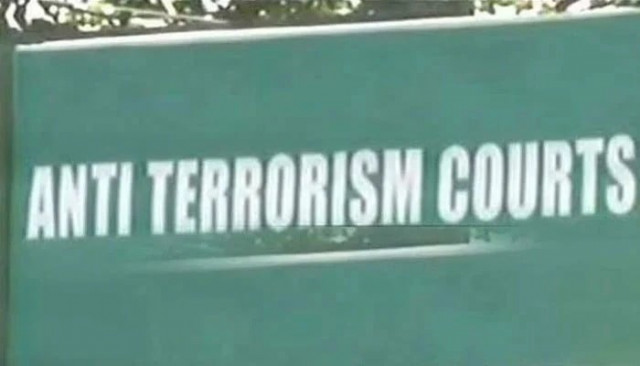Lahore:
The judge of the Anti-Terrorism Court, Manzer, Ali Gill, observed that the violence of May 9 was not considered a peaceful demonstration by a global standard, noting that the coordinated attacks were simultaneously carried out in different cities, specifically targeting states buildings, military facilities and monuments associated with the armed forces.
Presenting the detailed judgment in the Rahat Bakery case, judge Gill said that the evidence showed that party leaders had been involved in the emergence of a conspiracy in the context of the attacks that followed the arrest of the founding president of PTI, Imran Khan.
It is relevant to note that the leaders of the PTI Omer Sarfraz Cheema, Ijaz Chaudhry, Mian Mehmood-Uur-Rasheed, Dr. Yasmin Rashid and others had each been sentenced to 10 years in prison in the case.
The court judged that the protest of itself was not a crime, but once the violence has been introduced, it changed the character of a demonstration.
Judge Gill noted that if citizens around the world protest peacefully, holding signs without taking over law, Pakistan, official buildings and police and military facilities across the country have been attacked.
He added that in today’s digital era, no incident can be hidden for a long time and “several clips, snaps and other documents are always available on Facebook, YouTube, Twitter, X and Tiktok until today. By clicking on the link, everyone could view each incident of tragic moments.”
Defense questions about the continuation of evidence
During the trial, the lawyer for the defense of the sentenced leaders of the PTI raised more than 100 disputes to the proof of the accusation, arguing that she had not resisted a meticulous examination.
They noted that none of the accused was appointed in the initial FIR; There was no description of their identity, no allegation of instigation or provocation, no explanation of the delay in the fir housing and flagrant inconsistencies within the deadlines and testimonies of the witnesses.
The lawyer also argued that the accusation had not established a burning of vehicles or goods, had retained video surveillance images and appeal data files, and had produced digital equipment, including CDs and USBs, without authentication or reading in court, as required by the standards of the Supreme Court, which makes it inadmissible.
They also claimed that the conviction was equivalent to a double incrimination, as it was based on the same evidence and testimonies used in other cases.
“Conspiracy witnesses” counter-examine
Two prosecution witnesses who claimed to have heard the alleged conspiracy – the main agent Muhammad Khalid and the sub -inspector Hassam Afzal – were subjected to an extensive counter -examination.
Khalid admitted that his mission to monitor PTI leaders in Zaman Park had been given by oral route; that no FIR has been recorded concerning the alleged conspiracy meetings; that he did not hold any trace of his arrivals or his departures; did not have any audio or video evidence; And has never returned to the supposed site of the meeting with the investigating officer for corroboration.
Likewise, if Hassam Afzal testified that his duty had been issued verbally, that his phone was neither seized nor examined, that he had not carried a mobile during visits to Zaman Park and that he did not know the adjacent residents around the residence of Imran Khan.
He also recognized that he had neither recorded any sequence or guest of others to observe the meetings.




